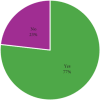Social Media Entertainment Among Children in Tema, Ghana: Impact of Restrictions and Associated Factors
- PMID: 40606963
- PMCID: PMC12221551
- DOI: 10.1155/ijpe/2396594
Social Media Entertainment Among Children in Tema, Ghana: Impact of Restrictions and Associated Factors
Abstract
Aims: To examine the prevalence of children's social media use for entertainment, sex differences in usage, perceptions of how restricting their access may affect them, the reasons behind these views, and predictors of social media use. Methods: Four hundred children aged 8-17 living in Tema, Greater Accra Region, Ghana, were sampled for the quantitative data, while 59 children were sampled for the qualitative data. Descriptive statistics, Pearson's chi-square test, and binary logistic regression were used to analyze the quantitative study, while the qualitative data were analyzed thematically. Results: Nearly 9 out of 10 children use social media for entertainment. Male children are more likely to use social media for entertainment than girls. The findings suggest that denying children access to social media for entertainment may result in negative consequences such as boredom, a scarcity of entertainment options, a lack of access to the most recent information on entertainment advancements and trends, and missed opportunities for online learning and content creation. Conclusion: This study demonstrates that most children use social media for entertainment, and limiting children's access to social media may lead to information isolation, entertainment deficit, and digital disengagement. Consequently, stakeholders must devise interventions that enhance children's access and responsible use of social media for entertainment. Future studies should examine children's frequency and intensity of social media use and its potential benefits and associated risks.
Keywords: Ghana; Tema; children; entertainment; social media.
Copyright © 2025 Sylvester Kyei-Gyamfi and Frank Kyei-Arthur. International Journal of Pediatrics published by John Wiley & Sons Ltd.
Conflict of interest statement
The authors declare no conflicts of interest.
Figures
References
-
- Alla K. Why Are Children Spending More Time Indoors? Southbank: Australian Institute of Family Studies; 2024. Available at: https://aifs.gov.au/sites/default/files/2024-07/2406_Children_indoors_1.pdf.
-
- Ministry of Gender Children and Social Protection. Ghana's 6TH and 7TH Report to the UN Committee on the Rights of the Child . Ministry of Gender Children and Social Protection; 2021.
-
- The Royal Children's Hospital National Child Health Poll. Australian Families: How We Play. Poll Number 28 . The Royal Children's Hospital Melbourne; 2023. Available at: https://www.rch.org.au/uploadedFiles/Main/Content/rch/NCHP28%2520Poll%25....
-
- United Nations Children's Fund (UNICEF) Gadget Playing and TV Watching Habits in Children Aged 2–5: Antecedents and Effects/Outcomes . UNICEF; 2020. Available at: https://www.unicef.org/georgia/media/5526/file/Gadget_Report_ENGLISH.pdf....
LinkOut - more resources
Full Text Sources


